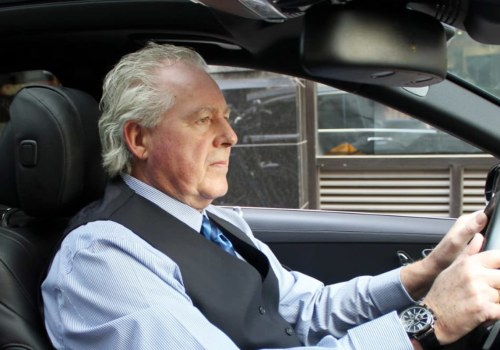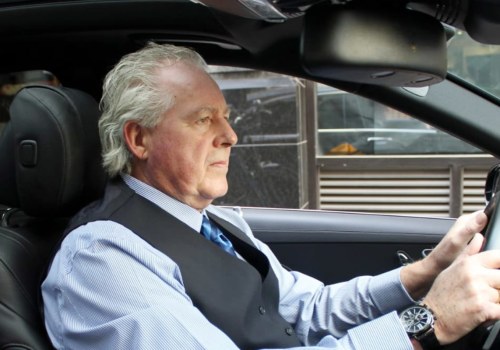Chauffeurs are known for their professionalism, punctuality, and dedication to providing exceptional service to their clients. While their primary responsibility is to transport passengers safely and comfortably to their destinations, there are often periods when chauffeurs find themselves waiting—whether it’s at an airport, outside a business meeting, or during an event. Far from being idle, these waiting times are often filled with activities designed to enhance their service, maintain their vehicle, and ensure they are prepared for the next leg of the journey.
Maintaining the Vehicle
One of the most important tasks chauffeurs perform during downtime is ensuring that their vehicle remains in pristine condition. A clean, well-maintained car reflects the chauffeur’s professionalism and contributes to a positive client experience. During waiting periods, chauffeurs often inspect the exterior and interior of their vehicle, wiping down any dirt or smudges and organizing the cabin to ensure it looks impeccable. They may also check fluid levels, tire pressure, and other mechanical components to ensure the vehicle is in optimal working condition for the client’s safety and comfort.
For longer waits, some chauffeurs take their vehicle to nearby service stations or designated areas for professional cleaning or minor maintenance, ensuring they are always prepared for the next client or trip.
Monitoring Schedules and Traffic
Chauffeurs are often responsible for managing complex schedules, especially when working with high-profile clients or for events that involve multiple pick-ups and drop-offs. While waiting, they review their schedules to confirm timings and locations. Using advanced GPS and traffic monitoring apps, chauffeurs analyze current traffic patterns to plan the most efficient routes, minimizing delays for their clients.
Additionally, chauffeurs stay in close contact with dispatchers or clients, ensuring they are aware of any changes to the itinerary or unexpected delays. This level of preparedness ensures a seamless experience for passengers, reflecting the chauffeur’s commitment to reliability.
Staying Accessible to Clients
During waiting times, chauffeurs remain readily available to their clients, often waiting close by in case their services are needed unexpectedly. For instance, if a client finishes a meeting earlier than planned, the chauffeur can quickly respond and be ready to depart. This accessibility is a key component of providing personalized and dependable service.
Chauffeurs often use this time to anticipate client needs. They may stock the vehicle with refreshments, adjust the temperature to the client’s preferences, or ensure that the entertainment system is ready for use. By taking these small but meaningful steps, chauffeurs enhance the overall experience for their passengers.
Enhancing Skills and Knowledge
Downtime provides an excellent opportunity for chauffeurs to refine their skills and knowledge. Many use these moments to review local maps, familiarize themselves with key landmarks, or learn about upcoming events in the area that might affect traffic. Staying informed about the city or region they operate in allows chauffeurs to provide valuable recommendations and insights to clients, further enhancing the quality of their service.
Chauffeurs may also use waiting periods to complete training modules or certifications, particularly in areas such as defensive driving, customer service, or etiquette. These efforts demonstrate a commitment to continuous improvement and professional development.
Relaxation and Recharging
Providing exceptional chauffeur services can be demanding, and waiting periods often serve as valuable moments for relaxation and recharging. Chauffeurs may use this time to eat a meal, enjoy a coffee, or simply rest in their vehicle. Maintaining a calm and composed demeanor is essential for the role, and taking brief moments to recharge helps chauffeurs stay alert and focused for the rest of the journey.
To make the most of this downtime, chauffeurs often plan their day to include breaks during waiting periods, ensuring they remain fresh and attentive throughout long shifts.
Handling Administrative Tasks
For many chauffeurs, waiting time is an opportunity to catch up on administrative tasks. This could include logging mileage, updating expense reports, or communicating with their employer or dispatcher. By staying on top of these tasks, chauffeurs ensure their records are accurate and that their employer or clients receive timely updates.
Additionally, some chauffeurs use this time to manage client preferences and notes, making sure they are fully prepared for future trips. This level of organization helps build trust and rapport with clients, contributing to a positive reputation in the industry.
Networking and Building Business
Independent chauffeurs or those working for smaller companies often use waiting periods to network or market their services. This might involve engaging with potential clients at events or connecting with businesses that require regular transportation services. In some cases, they may even secure additional bookings, ensuring they remain productive during downtime.
For those seeking a reliable chauffeur service, the option to rent now ensures you have access to professionals who are prepared and dedicated, even during waiting times.
Conclusion
Chauffeurs do much more than simply wait during their downtime. From maintaining their vehicle and managing schedules to staying accessible and honing their skills, chauffeurs use these moments productively to ensure they deliver the highest level of service. Whether it’s preparing the car for the next trip, monitoring traffic patterns, or simply recharging to stay sharp, chauffeurs make the most of every minute to exceed their clients’ expectations. This professionalism and dedication are what set great chauffeurs apart in the competitive transportation industry.







